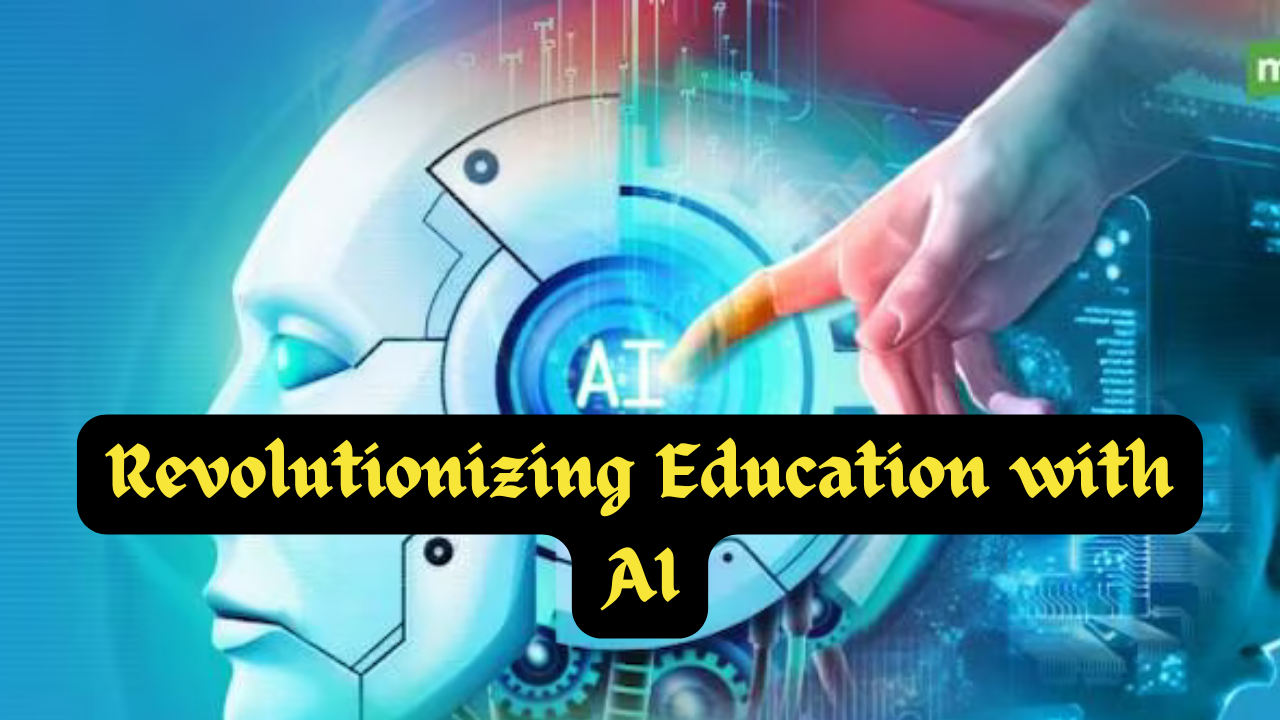In today's blog post, we're about to unveil Education with AI, some mind-blowing AI tools that are transforming the way we learn and teach. From AI-powered headbands that gauge concentration levels to personalized learning platforms that adapt to your unique needs, get ready to be amazed by the incredible ways artificial intelligence is reshaping education.
1. AI Headbands for Real-time Concentration Monitoring
Chinese schools, like Jinu Xiaan Primary School in Eastern China, have integrated AI headbands to gauge students' concentration levels in real-time. Created by US-based Brainco, these headbands provide teachers with valuable data on student engagement, enabling tailored instruction to meet individual needs.
2. Quarium - Personalized Learning for Maths and Science
Quarium, an online educational platform, revolutionizes maths and science learning with personalized AI-powered solutions. Using adaptive learning technology, Quarium customizes content for each student, offering precisely targeted lessons and practice problems tailored to their unique needs. It seamlessly integrates with learning management systems, enhancing the learning experience.
3. Ryed - AI for Personalized Learning and Test Preparation
Ryed, a South Korean startup with a focus on standardized testing, introduces Santa, an AI-powered education tool. Santa serves as a personal tutor, helping students prepare for tests like the Test of English for International Communication. Ryed utilizes AI algorithms to analyze student performance and preferences, creating customized learning materials and exercises.
4. Carnegie Learning - AI in K12 Education Technology
Carnegie Learning, with over 25 years of experience, leads in K12 education technology. Utilizing AI, formative assessment, and adaptive learning, Carnegie Learning tailors lessons to students' needs, offering real-time feedback and assisting teachers in personalized learning.
5. Century - AIDriven Education Platform for Personalized Learning
Century, an AI-driven education platform, combines learning science, artificial intelligence, and neuroscience to provide personalized learning pathways. It automates administrative tasks, such as assessments and progress tracking, freeing up time for educators to focus on teaching.
6. Osmo - Educational Gaming System for Interactive Learning
Osmo, an educational gaming system, blends fun and education for children aged 3 to 12. Using physical game pieces and a digital device, Osmo creates an immersive learning experience in subjects like maths, spelling, coding, and drawing.
7. Noji - Vocabulary Learning with AI-backed Techniques
Noji is a vocabulary learning platform that blends science-backed techniques with engaging content. With a built-in memory coach and spaced repetition algorithm, Noji ensures effective and lasting vocabulary learning.
8. Cogny - Virtual Learning Assistant for Real-time Coaching
Cogny, an intelligent tutoring system, engages learners in real-time, one-on-one coaching conversations. Using natural language processing algorithms, Cogny assesses written responses, providing effective coaching and enhancing critical thinking.
9. Ivy - AI Chatbot for University Processes
Ivy, a chatbot designed for universities and colleges, assists learners in blended learning activities. It provides information on university processes, including application forms, enrollment, tuition costs, and deadlines, reducing the administrative burden on teachers.
10. Gradescope - AI Grading Platform for Efficient Assessment
Gradescope, an AI grading platform, streamlines the grading process for both paper and digital assignments. Integrated with eLearning systems, it uses optical character recognition and AI to efficiently grade homework, exams, and coding assignments, reducing manual grading time.
Conclusion: AI in Education.
"As we conclude our exploration of 'Revolutionizing Education with AI: Unveiling Mind-Blowing Tools,' it's evident that the integration of artificial intelligence is reshaping the educational landscape. From AI headbands gauging concentration levels to platforms offering personalized learning experiences, the tools unveiled signify a paradigm shift in how we learn and teach. The future of education is here, marked by innovation, personalization, and the transformative power of AI. Stay tuned for more insights into the dynamic intersection of technology and education."
Frequently asked questions (FAQ): Revolutionizing Education with AI
1. How is artificial intelligence transforming the education sector?
Artificial intelligence is transforming education by introducing innovative tools that cater to individual learning needs, offering personalized experiences, and streamlining administrative tasks for educators.
2. What are some examples of AI tools mentioned in the article?
The article discusses AI-powered headbands for measuring concentration levels, platforms like Curium and Ryed offering personalized learning, and tools like Osmo and Noji providing interactive and engaging learning experiences.
3. How does AI contribute to personalized learning?
AI contributes to personalized learning by tracking individual progress, adapting content to learning styles, and offering tailored lessons. This ensures that students remain engaged, motivated, and challenged at their own pace.
4. How does Carnegie Learning utilize AI in education?
Carnegie Learning uses AI to tailor lessons based on students' needs, provide real-time feedback, and assist teachers in administrative tasks. The goal is to make learning more effective and efficient.
5. Can AI be used to enhance grading processes in education?
Yes, tools like Gradescope AI streamline grading processes by using optical character recognition and artificial intelligence to efficiently grade various types of assignments, reducing manual grading time and ensuring consistency.
6. What role do AI chatbots play in education?
AI chatbots, exemplified by Ivy, assist learners in university-related queries, plan recruitment campaigns, and improve efficiency by addressing questions before reaching human staff.
7. How does AI contribute to creating interactive learning experiences?
AI contributes to interactive learning experiences through tools like Osmo, which combines physical game pieces with digital devices, making learning enjoyable and engaging for children.
8. How can AI tools benefit educators in managing administrative tasks?
AI tools, such as Century, automate administrative tasks like assessments and progress tracking, allowing educators to focus more on teaching and providing a user-friendly interface for detailed learning data.
9. What is the significance of AI in reshaping the future of education?
AI plays a significant role in reshaping education by fostering innovation, personalization, and efficiency. The tools unveiled in this article showcase the transformative impact of AI on the future of learning and teaching.
Written by: Muktar
























